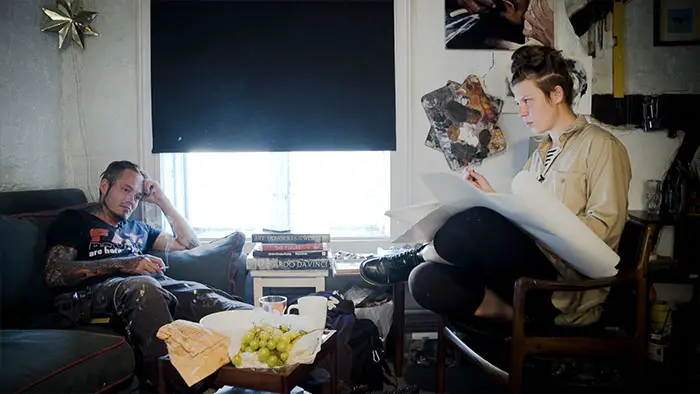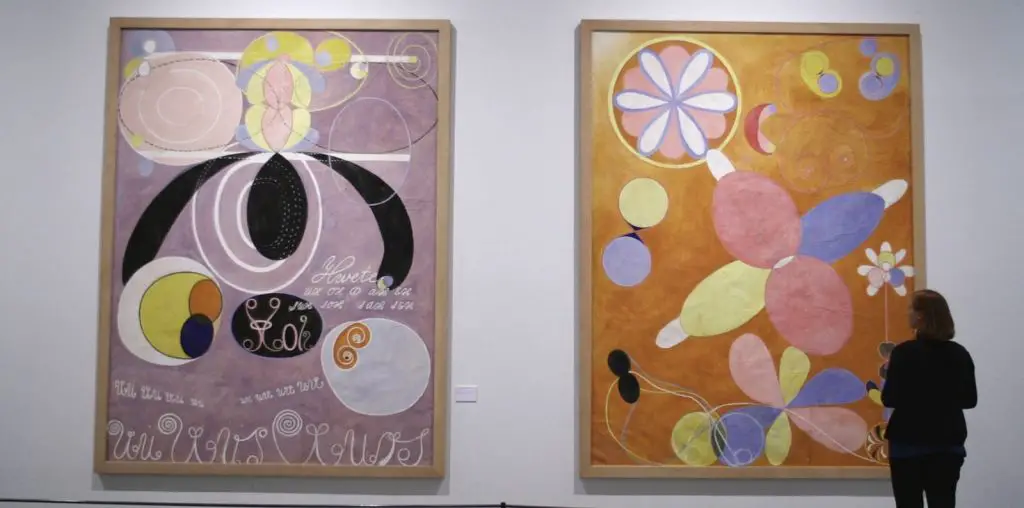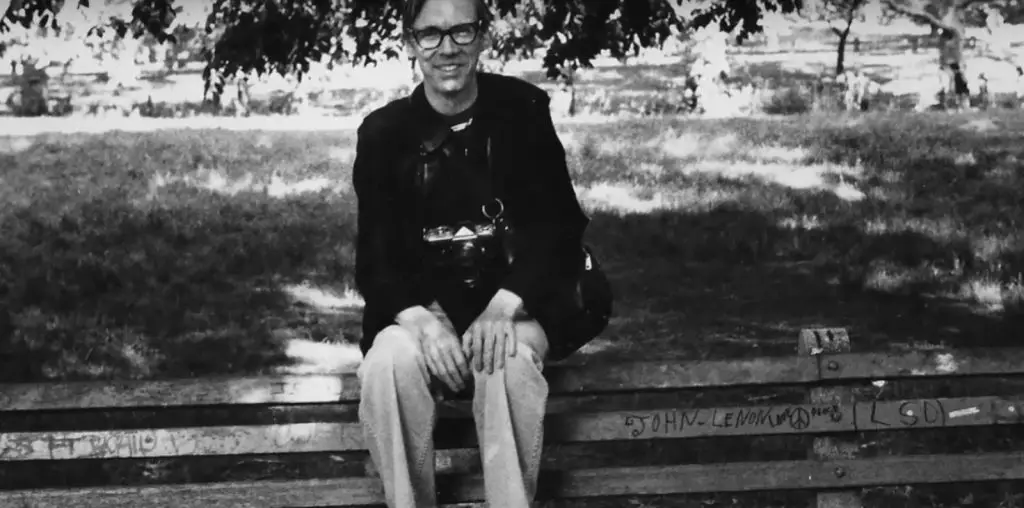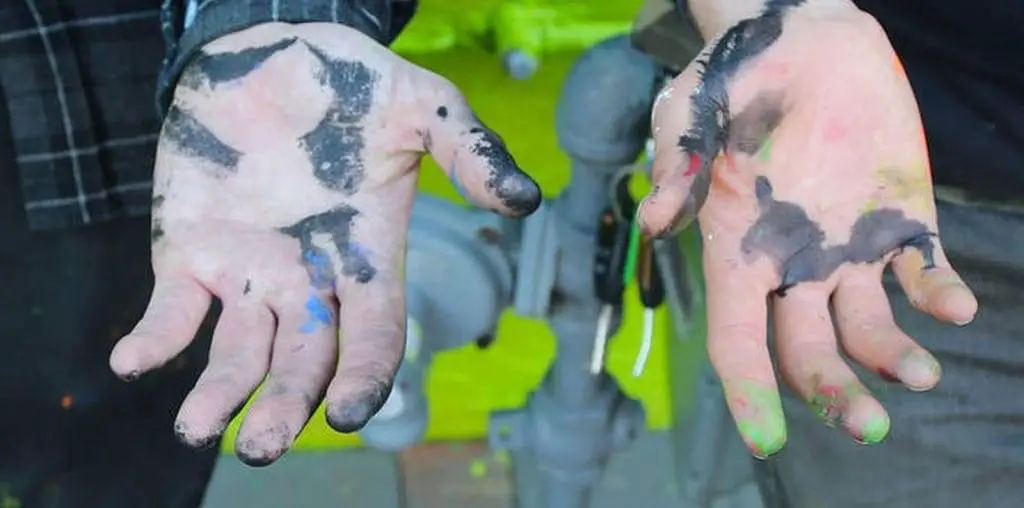
At this point, the film switches gears and takes a look at Barbora, through Karl-Bertil’s eyes. “She sees me very well,” he says. “But she forgets that I see her too.” Fascinated by death since childhood, and still recovering from an abusive relationship, Barbora, somewhat masochistically, finds inspiration in darkness and suffering. “The wounds run deep, but it has given her this drive,” Karl-Bertil acutely points out.
As The Thief and the Painter progresses, Ree gradually unfurls deeper layers, expertly switching back and forward between perspectives and timelines. As a result, a picture of two seemingly disparate but very similar personalities emerge. Karl-Bertil is introverted to an extreme, self-destructive, lonely, and skeptical. Early on, he suspects the artist of ulterior motives, asking, “Is she out to harm me?” She’s equally self-destructive, buying him lunches to feed off his demons, taking photos of his post-accident stigmata-like wounds in absolute fascination. Barbora’s husband feels especially uncomfortable by the sources of her inspiration, how fully she commits to someone else’s suffering to trigger a visceral emotional response. “The suffering has to have aesthetics,” she tells him during a heated argument. Both Karl-Bertil and Barbora are, in a way, addicts.

“…gradually unfurls deeper layers, expertly switching back and forward between perspectives and timelines.”
In one memorable scene, Barbora notes how, in one setting, Karl-Bertil could’ve become a suicide bomber, yet in another, he could be the prime minister of Norway. The Painter and the Thief is about the role your background and your circumstances play in shaping you as a human being, whether you let your soul remain intact despite being bombarded by a steady stream of crap. It’s about all of us seeking out the most unlikely of inspirations and discovering connections in the most unlikely of places. It’s about the transcendent power of art, how it can turn you inside out, and change you as a person. It’s about the artist’s struggle to be heard (I, for one, very much relate to Barbora’s pain when she gets yet another “no”).
Sometimes we need to bask in each other’s demons, to exorcise them, and achieve a semblance of redemption. Ree traces such a relationship; like an evocative painting, The Painter and the Thief will remain engraved in your memory. As for Barbora, her work is astonishing, and you should seek it out.

"…sometimes we need to bask in each other's demons, to exorcise them, and achieve a semblance of redemption."


